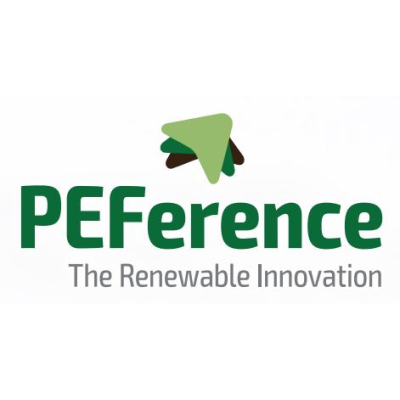CBE JU is recognised as a strategic financial instrument for Europe’s biotech and biomanufacturing sector scaling up the production capacity of bio-based chemicals and materials to industrial scale. The partnership’s important contribution was highlighted in the European Commission’s communication on Building the future with nature: Boosting biotechnology and biomanufacturing in the EU launched by Margrethe Vestager, the Executive Vice President of the European Commission, yesterday.
By reducing the Europe’s dependency on fossil-based input and other sources of raw materials biotech increase circularity and strengthen our path towards independence of fossil fuels. With today’s proposal we want to create the right environment for this sector to grow and deliver global solutions to societal and environmental problems.
Margrethe Vestager, Executive Vice-President for a Europe Fit for the Digital Age
Biotech, a critical technology for Europe
In the communication on building the future with nature, the European Commission proposes a series of targeted actions to boost biotechnology and biomanufacturing in the EU.
I am very pleased to see that in this communication, the European Commission has recognised the value of the bio-based industry as crucial for the competitiveness of EU industry, offering high growth and regenerative potential. It is a major step forward in unleashing the potential of the industrial, flagship and demo plants for bioproducts that are driving the circular bioeconomy in Europe.
Catia Bastioli, CEO of Novamont
The fast-growing, innovative bio-based sector transforms biological resources into chemicals, products and materials for a wide range of industries, such as chemicals, textiles, cosmetics and agri-food, and is bringing new, sustainable consumer products to the market. Its environmental and socio-economic potential makes it one of the most promising technological areas of this century.
Bioeconomy at the heart of the EU’s biotech and biomanufacturing
CBE JU funding supports projects developing and producing innovative, sustainable and circular bio-based solutions across many sectors spanning from bio-based chemicals to food and feed ingredients, from construction materials to packaging. These projects are key in boosting Europe’s competitiveness as well as local economies.
With the help of innovative biotechnologies, the CBE JU-funded projects also tackle some of the current production challenges like lowering greenhouse gas emissions, improving sustainability sourcing, reducing and valorising waste, decreasing pollution and increasing energy efficiency, while at the same time preserving biodiversity and fostering an efficient use of natural resources.
The 16 first-of-their-kind industrial scale flagship biorefineries built across Europe with CBE JU’s support significantly reinforce the backbone of EU biomanufacturing for chemicals and materials. Newly built and revitalised old industrial sites in different regions will strengthen EU’s strategic autonomy by reinforcing local supply chains, reducing EU external dependencies on strategic imports and increasing its technological leadership.
See some examples of CBE JU-funded biorefineries below.
Regulatory and financial incentives required to retain biomanufacturing investments in Europe
Yesterday’s communication addresses important challenges of the bio-based sector, such as scaling up research & technology to the market, regulatory complexity, access to finance and consumer acceptance, and provides actionable solutions at European scale. Together with its founding partners, the Bio-based Industries Consortium and the European Commission, CBE JU will continue the work in supporting efforts to retain Europe’s leading global position in innovative circular solutions for the sustainable growth of our continent.
Nicoló Giacomuzzi-Moore, CBE JU Executive Director
The EU biotechnology and biomanufacturing sector is facing several challenges: research and technology transfer to the market, regulatory complexity, access to finance, skills, value chain obstacles, intellectual property, public acceptance and economic security.
The communication highlights in particular that ‘to promote EU industrial competitiveness and its sustainability, greater efforts are needed to create the right environment for this sector to grow. European biotech and biomanufacturing companies need a supportive regulatory framework and more financing opportunities to thrive in Europe.'
The European Commission proposes to address the sector’s challenges with a number of concrete actions in several key areas: leveraging research and boosting innovation; stimulating market demand; streamlining regulatory pathways; fostering public and private investments; elaborating and updating standards and supporting collaboration and synergies, among others. Reviewing the EU Bioeconomy Strategy by end 2025 is among the proposed measures.
Most of the challenges and solutions outlined in the communication correspond to the ones identified by the European bioeconomy stakeholders at last year’s CBE JU Stakeholder Forum, in view of boosting the EU’s biomanufacturing sector’s leadership while attracting and retaining investments in Europe.
CBE JU-funded first-of-their-kind biomanufacturing facilities across sectors and European regions
Bio-based chemicals
The EU is the world’s largest producer of sugar beet. The sector supports around 140,000 sugar beet growers and around 27,000 direct jobs in sugar beet processing. The AFTERBIOCHEM flagship project in Carling Saint-Avold (France) is building the first all-in-one biorefinery to transform the sugar industry’s sidestreams – mainly pulp and non-food waste – into bio-based molecules of industrial interest. This will increase the economic and environmental sustainability of the sugar beet industry. In addition, the biorefinery production process will be flexible enough to adapt to alternative feedstocks, such as organic waste from sewage sludge and household waste, in the future.
Bio-based polymers
Modern human societies need plastics that are recyclable, biodegradable and compostable for a wide range of uses. In Delfzijl (the Netherlands) the PEFerence flagship project is establishing the first industrial scale, cost-effective biorefinery producing 5,000 tonnes/year of Furan DiCarboxylic Acid (FDCA), a bio-based chemical, to make high-value products. The goal is to replace a significant share of fossil-based plastics with 100% bio-based polymers. These can compete with traditional packaging products in price and performance when produced at scale. The resulting bio-based material is more sustainable and completely recyclable.
Construction materials
Lubricants, adhesives, and plastics are extremely useful materials, but they are made of fossil-based resources, contributing to global warming and pollution. The SWEETWOODS flagship project is building a first-of-its-kind industrial biorefinery in Imavere (Estonia) to obtain high-value compounds using hardwood waste as a raw material more efficiently and with a lower environmental impact, including reducing waste, GHG emissions, and water and chemical use. The biorefinery is also spurring the creation of a new industry and innovation hub in Estonia focused on forestry-based chemicals and materials.
Food supplements, feed and cosmetics
SCALE flagship project in Baillargues (France) strives to build and operate the world’s first fully integrated microalgae biorefinery to produce natural active ingredients of high nutritional value for the food supplements, feed, and cosmetics sectors. Led by a French small business, this project aims to reduce the dependency on fossil-based resources for food, feed and cosmetic sectors, replacing them with bio-based alternatives and, at the same time, capturing CO2 from the atmosphere to feed the algae and reducing the need for land that can be used instead for forestry and agriculture.
Alternative proteins
The EU is by far the biggest importer of food worldwide. At the same time, there is an increased need for sustainable alternative proteins. The PLENITUDE flagship project in Sas van Gent (the Netherlands) aims to produce affordable plant-based proteins for human consumption. The first-of-its-kind biorefinery cultivates fungi, which are then harvested and processed for use in a number of consumer products. Such a production process significantly reduces CO2 emissions when compared to traditional livestock and animal feed production and adopts a circular, minimal waste model.




